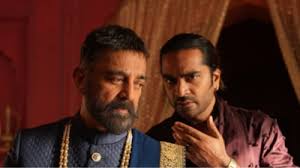‘Can’t allow mobs, vigilante groups to take over our streets’: SC tells Karnataka over ‘Thug Life’ ban

The Supreme Court of India recently issued a firm warning to the Karnataka government. It explicitly rejected the idea of allowing mobs or vigilante groups to impose bans on content like the web series Thug Life. Moreover, the Court emphasized that law and order must be maintained through proper legal channels. It cannot be left to self-appointed groups to decide what is acceptable in public spaces. Therefore, this ruling stresses the importance of protecting freedom of expression while ensuring peace and order.
Background: The ‘Thug Life’ Ban Controversy
The issue began when certain groups in Karnataka protested against the web series Thug Life. The series, available on digital platforms, is known for its edgy and raw storytelling. However, some community groups claimed it hurt their sentiments and violated moral values. Consequently, Karnataka authorities banned the series in the state to maintain public peace.
This ban sparked widespread criticism. Many civil rights activists, filmmakers, and freedom advocates argued that the ban went too far. They saw it as censorship influenced by pressure from non-state groups. Subsequently, the Supreme Court took notice and highlighted the need to balance public feelings with constitutional rights.
Supreme Court’s Firm Stand Against Vigilantism
The Court made it clear that no mob or vigilante group has the right to impose moral standards by force or intimidation. Justice [Name], who led the bench, said, “We cannot allow mobs or vigilante groups to take over our streets and decide what is acceptable.” Furthermore, he added that the state must uphold the law and refuse to yield to threats from unlawful groups. The Court urged Karnataka to act firmly against such extrajudicial pressure.
Freedom of Expression and Its Limits
This case raised important questions about freedom of expression. Article 19(1)(a) of India’s Constitution guarantees this freedom as a core democratic value. Yet, it is not unlimited. The law allows reasonable restrictions to protect public order, morality, and sovereignty. The Court acknowledged this but stressed that any restriction must follow legal procedures. Bans should never result from threats or pressure by groups. Moreover, the Court warned against allowing subjective views to drive censorship.
The Role of the State and Law Enforcement
The Karnataka government faced a difficult situation. It encountered pressure from protestors demanding the ban. At the same time, it had a legal duty to protect everyone’s constitutional rights. The Supreme Court’s directive reminded the government to respect these duties. Specifically, it must not bow to unlawful demands. Law enforcement agencies should prevent violence and crack down on groups that try to impose bans through intimidation. In fact, the Court emphasized that peace must be maintained through law, not vigilante action.
Broader Implications for Digital Content and Censorship
The Thug Life ban highlights a larger challenge in India. Digital platforms create new complexities for regulating content in a culturally diverse society. What may be acceptable to one group could offend another. As debates on content regulation grow, the Court’s ruling makes an important point: censorship must be fair, transparent, and lawful. It cannot be arbitrary or based on pressure from powerful groups. Therefore, this judgment sets a precedent for handling future content-related disputes.
Civil Society and Public Reaction
The Court’s intervention earned praise from artists, writers, and free speech advocates. They welcomed the ruling as a protection against creeping censorship and fear of intimidation. Many stressed that creative freedom is vital for a thriving democracy. They warned that allowing mobs to impose bans threatens this freedom. However, some community groups worried that the ruling might weaken cultural and local sentiments. Still, the Court’s message remains firm: democratic rights must be protected within the rule of law. Consequently, grievances should be addressed through legal means, not street protests or threats.
Conclusion: Upholding Democracy and Rule of Law
The Supreme Court’s statement to Karnataka strongly reaffirms democratic principles. It shows that the rule of law must always prevail. No group, no matter their intentions, can take the law into their own hands. As India faces growing challenges related to digital content and cultural diversity, this ruling serves as a critical guide. It reminds everyone that freedom comes with responsibility. Restrictions on speech or content must respect constitutional safeguards and legal processes. Above all, they cannot be enforced by mobs or vigilantes.
The Karnataka government and law enforcement agencies must take this directive seriously. They should prevent any erosion of law and order caused by unlawful bans or censorship pressures. Only by upholding the rule of law can India maintain a democratic society where diverse voices coexist freely and without fear.






